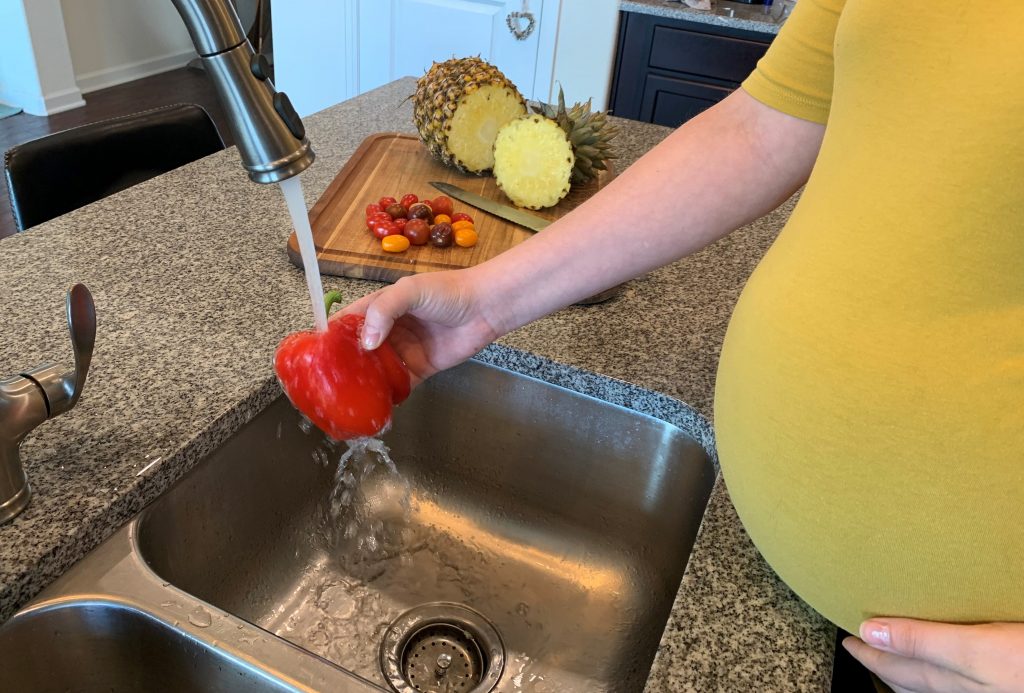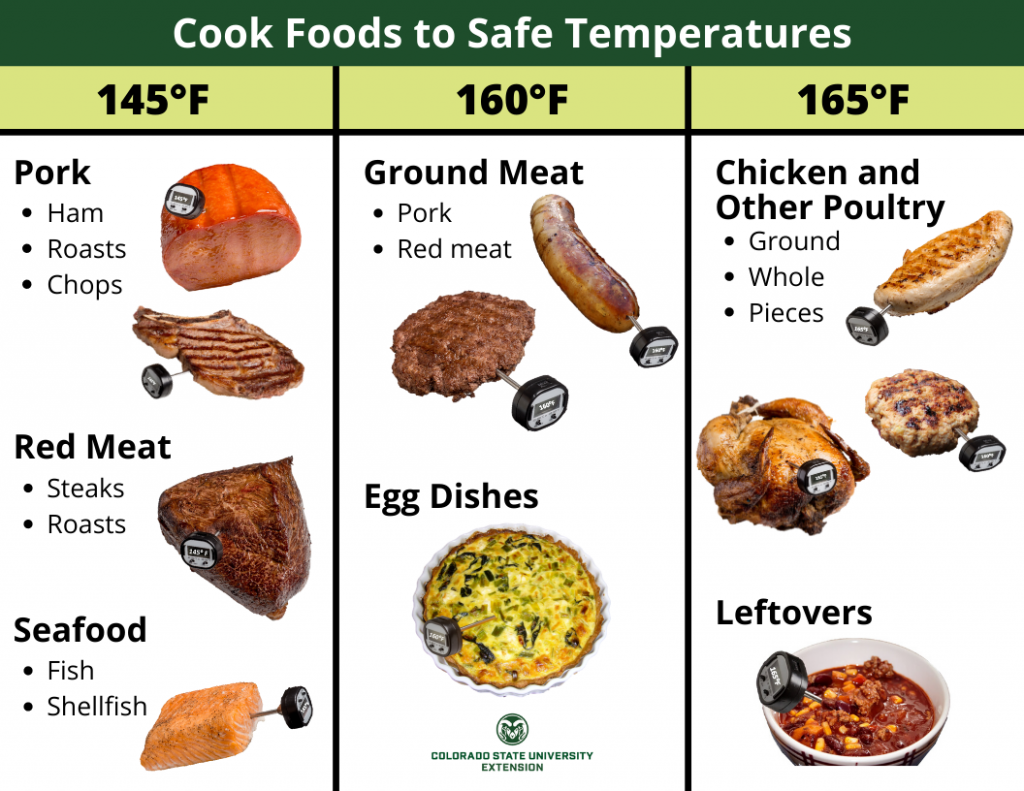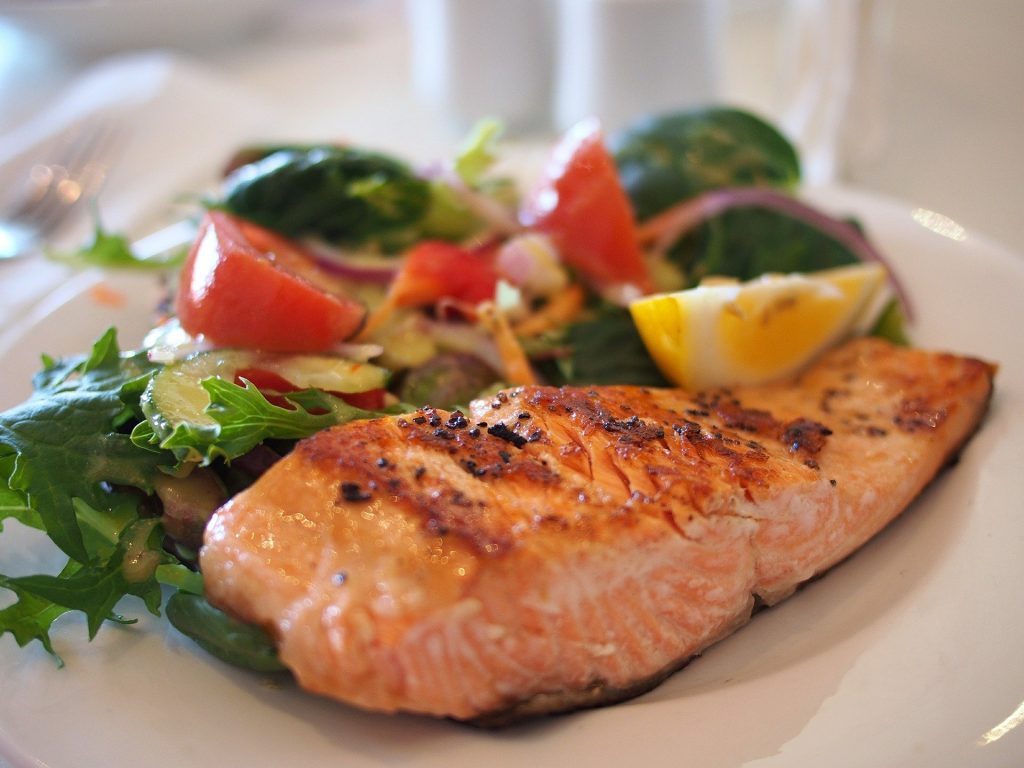Pregnancy is a special time when food choices and safe handling of food take on new importance. Pregnant women are at increased risk for foodborne illnesses. Hormonal changes during pregnancy suppress certain aspects of the mother’s immune system. Although important for the development of the baby, this can make her more susceptible to infections. For the well-being of both mother and baby, being mindful of food safety during pregnancy is critical.

Handling Food Safely
Foodborne illness can cause serious complications for both mother and baby during pregnancy. To protect these ‘high-risk’ individuals, precautions need to be taken to ensure food is handled safely.
- Refrigerated foods should be kept at 40°F or below. Use a refrigerator thermometer to monitor the temperature of your refrigerator.
- Use a food thermometer to confirm that cooked foods reach safe internal temperatures. Meat, poultry, seafood, and eggs can be contaminated with bacteria and have been the source of many foodborne illness outbreaks.
- Cook meat and poultry to the recommended temperatures (table below).
- Heat hot dogs and sliced deli and luncheon meats to 165°F or until steaming hot.
- Cook seafood to 145°F.
- Cook eggs and egg dishes to 160°F.
- Reheat leftovers like casseroles, pizza, and stews to 165°F.

Making Safe Food Choices
- Instead of purchasing salads and meat spreads at a deli counter, try making these at home. Or choose pre-packaged, refrigerated or shelf-stable products (e.g., canned foods) and refrigerate after opening.
- Avoid products that contain raw eggs, such as raw dough and batter, homemade eggnog, and eggs Benedict.
- Be mindful of best-by and expiration dates.
- Make smart seafood choices.
- The Dietary Guidelines for Americans recommend pregnant and breastfeeding women eat about 2-3 servings of low-mercury seafood per week. Seafood has many beneficial nutrients and contains omega-3 fatty acids, which have been shown to be important for brain development.
- Cook seafood or choose shelf-stable (canned) options. Refrigerated smoked seafood can pose a risk because ‘cold smoked’ seafood does not reach a recommended safe cooking temperature.

- Avoid raw sprouts like alfalfa, which can harbor harmful bacteria. If consuming sprouts, cook first.
- Choose pasteurized juices. The pasteurization process inactivates most bacteria but many ‘freshly made’ juices are not pasteurized.
- Choose pasteurized dairy products. Listeria, which may be found in raw milk products and survives at refrigerator temperatures, can cause severe and sometimes fatal complications during pregnancy. Avoid unpasteurized milk and soft cheeses made with raw milk, such as queso fresco.
Steps When Preparing Raw Food
Follow these 4 steps when handling food:
Clean: Wash your hands, cooking utensils, and surfaces. Rinse fresh fruits and vegetables well, such as berries, leafy greens, and the skins of melons and citrus before cutting or peeling.
Separate: Separate raw and cooked foods, making sure that raw poultry, meat, seafood, and eggs do not contaminate ready-to-eat food. Do not use the same utensils and dishes used to prepare raw foods when preparing or serving cooked or ready-to-eat foods.
Cook: Make sure cooked foods reach safe minimum internal temperatures.
Chill: Divide leftovers into smaller portions or shallow containers to cool quickly. Refrigerate foods within 2 hours of cooking to prevent foodborne illness. Eat or freeze leftovers within 3-5 days or by the best-by date, whichever comes first.
For more information about food safety during pregnancy, see: https://extension.colostate.edu/topic-areas/nutrition-food-safety-health/food-safety-during-pregnancy-9-372/.

